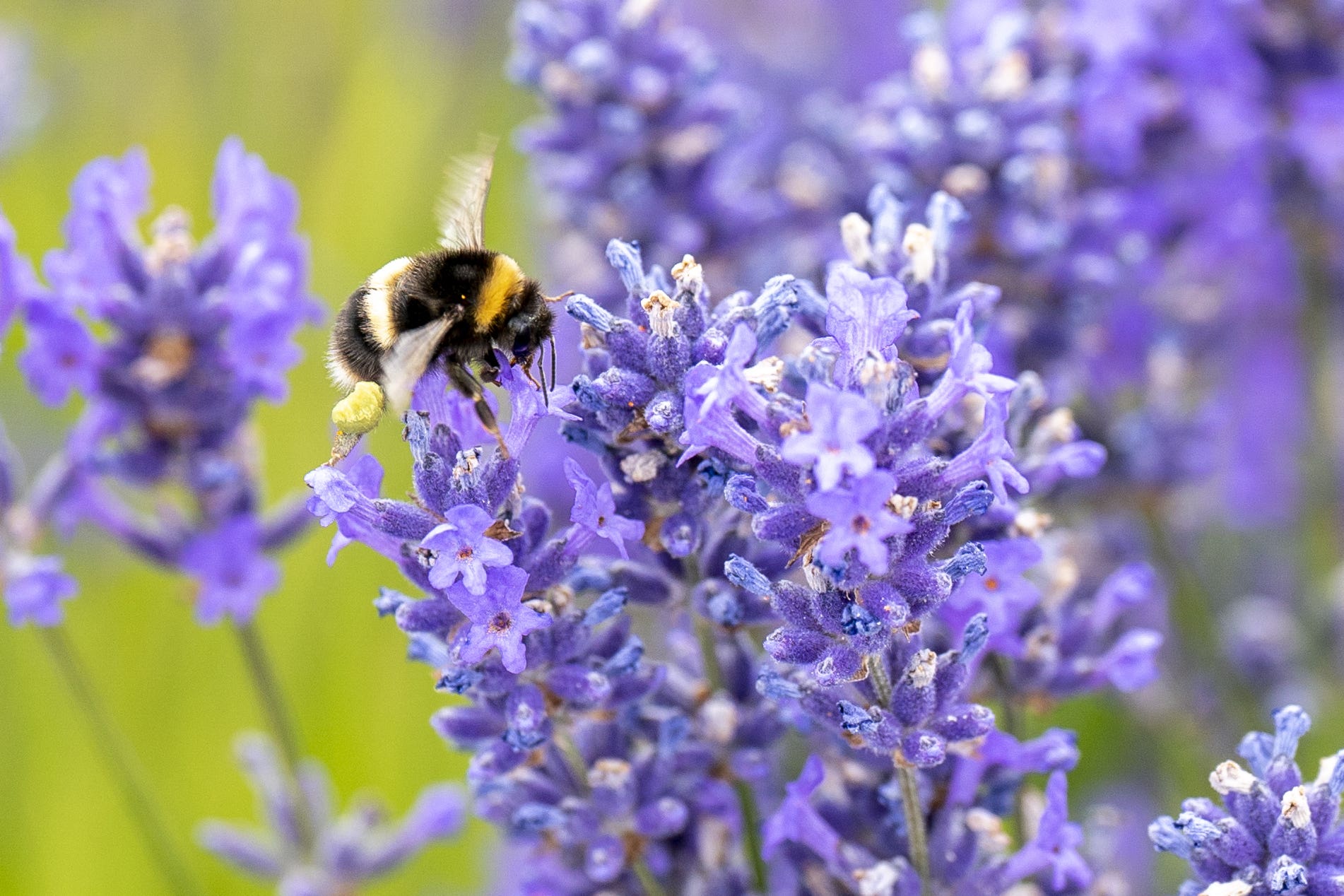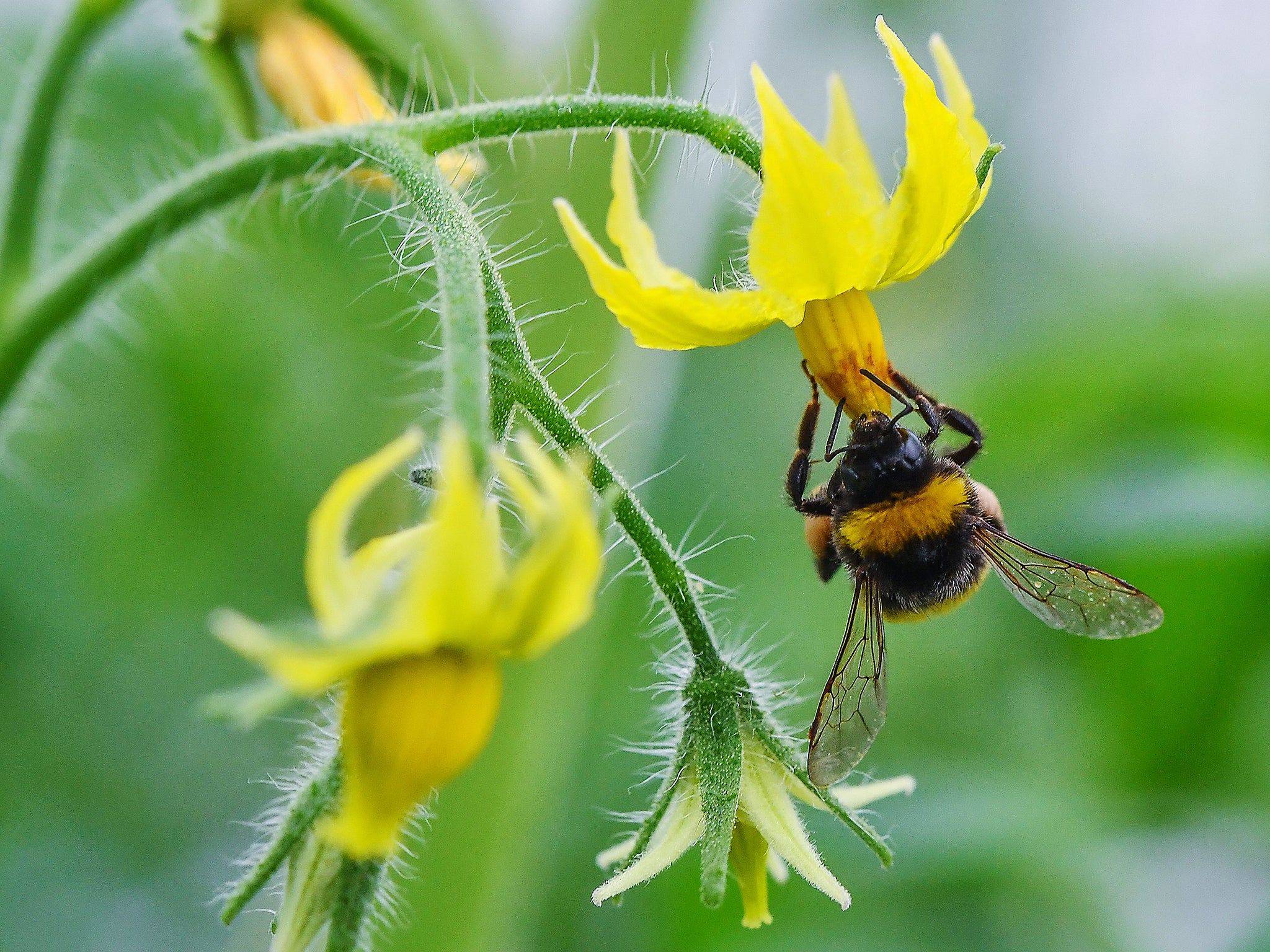Bumblebees can survive underwater for up to a week, accidental discovery shows
Canadian researchers made the ‘surprising’ discovery after accidentally submerging a bumblebee underwater

Your support helps us to tell the story
From reproductive rights to climate change to Big Tech, The Independent is on the ground when the story is developing. Whether it's investigating the financials of Elon Musk's pro-Trump PAC or producing our latest documentary, 'The A Word', which shines a light on the American women fighting for reproductive rights, we know how important it is to parse out the facts from the messaging.
At such a critical moment in US history, we need reporters on the ground. Your donation allows us to keep sending journalists to speak to both sides of the story.
The Independent is trusted by Americans across the entire political spectrum. And unlike many other quality news outlets, we choose not to lock Americans out of our reporting and analysis with paywalls. We believe quality journalism should be available to everyone, paid for by those who can afford it.
Your support makes all the difference.Scientists have made the shock discovery that bees can survive underwater for a week - and only found it out because researchers accidentally kept one submerged for days.
One queen common eastern bumblebee survived for seven days after water accidentally got into the container it was being kept in - described as a “surprising” discovery by researchers from the University of Guelph, Canada.
The team then carried out the study on 143 insects with those kept underwater showing similar survival rates to those above ground.
“It was really surprising. These are terrestrial organisms, they’re not really designed to be underwater. We don’t know much about this critical phase in their life history,” the study’s author Nigel Raine told CNN.
Dr Raine said the findings shed new light on the insects’ adaptations and their resilience to flooding, with one theory suggesting the species can enter diapause - a state of suspended growth through reduced oxygen intake.

During diapause, respiratory openings known as spiracles can close for extended periods and stop water from entering the body, and submerged bumblebee queens may also breathe through their skin, the researchers said.
“These bees are effectively on energy-saver mode,” said Dr Raine, who added that they most likely wouldn’t survive underwater if they were active.
The common eastern bumble bee is a pollinator of flowers and numerous fruit and vegetable crops, including tomatoes, blueberries, and cucumbers, according to the United States’ National Wildlife Federation.
They are social insects that live in colonies. Newly mated queen bees hibernate over the winter, then emerge in early spring and begin searching for a nest site.
The insects can be found throughout the east coast from Maine to Florida and west through Ohio in the US. Their nests are located in woodlands and fields.
In March, scientists found bumblebees can use their “hive mind” to teach each other to solve complex puzzles that are too difficult to learn alone.
The scientists trained “demonstrator” bees to complete the task, with a temporary reward at the first step. Untrained bees learned to open the two-step box from the demonstrators without needing a reward after the first step.
However, when there were no demonstrators to show how it was done, the bees failed to solve the puzzle independently through trial and error.
Join our commenting forum
Join thought-provoking conversations, follow other Independent readers and see their replies
Comments